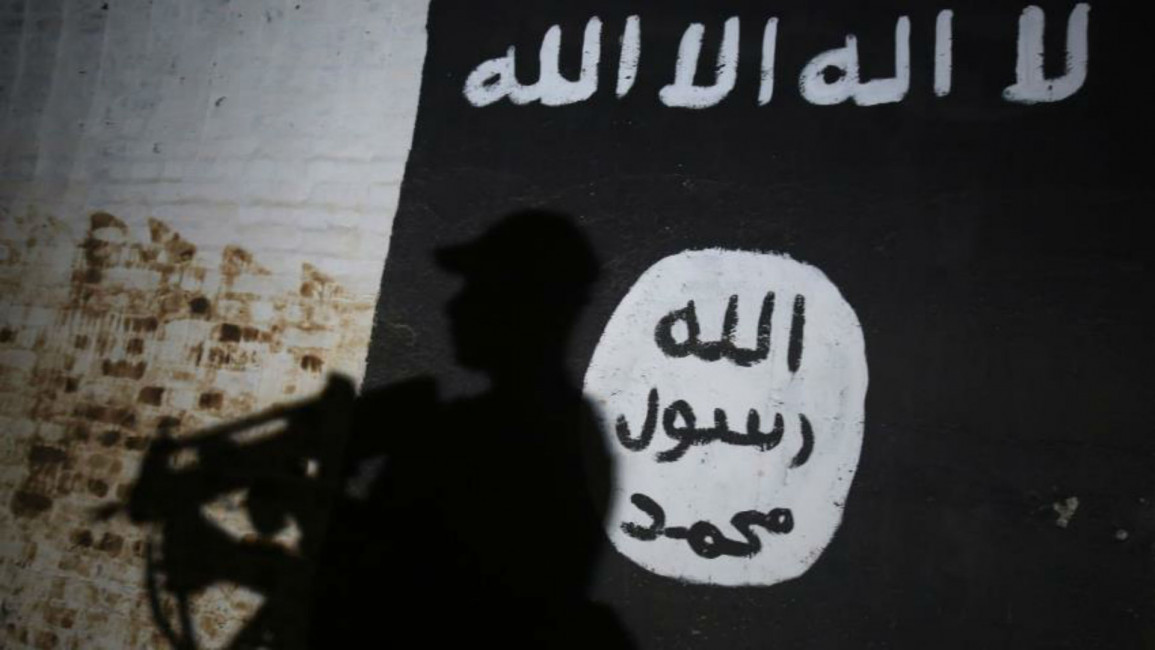
Islamic State will exploit coronavirus, don't give them chance
Islamic State will exploit coronavirus, don't give them chance
Comment: IS will exploit any instability, including a potential humanitarian crisis caused by coronavirus, writes Paul Iddon.
5 min read
Islamic State still poses a threat that must be contained [Getty]
Events in Iraq and Syria over the past fortnight demonstrate that Islamic State (IS) group still poses a significant threat. The group's activities are also a striking reminder that efforts to combat them are still essential, and that IS must not be allowed to exploit the coronavirus pandemic to reorganise, and inflict new atrocities on the peoples of the region.
In Iraq, IS activity has markedly increased over the past two weeks with the group causing casualties among its Iraqi and Kurdish enemies, both of which are largely focusing on preventing the further spread of the coronavirus contagion.
On 13 April, Iraqi forces clashed with IS in the countryside of Kirkuk province. At least one Iraqi soldier was killed. The previous day, an IS sniper shot dead a police officer at a checkpoint in Kirkuk's Hawija. On 7 April, an IS attack killed two Peshmerga troops in the Garmiyan region.
These attacks are significant and alarming.
To make matters worse, Iraqi Security Forces (ISF) and the Peshmerga are still not cooperating in disputed territories such as Kirkuk and Makhmour. In these regions there is a power vacuum that IS has successfully exploited since the Peshmerga withdrew in October 2017.
Iraqi military operations aimed at completely removing them have failed. In March, IS killed two US Marines who were attempting to remove them from caves in the Qarachokh Mountain.
Cooperation between the ISF and Peshmerga to plug these security gaps is essential for preventing further attacks and denying the militant group a sanctuary. Given the uptick in attacks over the last two weeks, Peshmerga officials have lamented the lack of coordination and warned how it benefits IS.
"Unfortunately, until now, we have not been able to find this coordination between us and the Iraqi forces, and this has created a golden opportunity for the organisation to operate in areas experiencing a security vacuum," said Peshmerga minister, Shorsh Ismael.
 |
Continued lack of cooperation and the coronavirus crisis could enable the militant group to make a substantial resurgence |  |
"We have repeatedly warned that the Iraqi government - especially the defence ministry - has not come forward to establish coordination between the Peshmerga and Iraqi Army in these areas," he said.
According to Yawar, there is an enormous security vacuum that extends 1,000 kilometres from Khanaqin to Rabia, from where IS has been able to operate and launch attacks. Continued lack of cooperation and the coronavirus crisis could enable the militant group to make a substantial resurgence there, which would be tragic considering the many painful sacrifices made by both Iraqis and Kurds to neutralise the group over the past six years.
There isn't just an uptick of IS attacks in Iraq. In Syria the group has also mounted a series of attacks.
 |
|
On 9 April, a surprise IS attack in Homs killed 18 pro-regime Syrian fighters. Then more clashes reportedly left almost 50 dead on both sides, including 27 Syrian regime troops.
Syria is particularly vulnerable to the coronavirus pandemic. The northeastern areas administered by the Kurdish-led Syrian Democratic Forces (SDF) have scant medical equipment to test for the virus and are also home to crowded prisons and camps where social distancing is impossible. Any outbreak there could, therefore, prove catastrophic.
To add insult to injury, the United Nations isn't allowed to deliver humanitarian aid to the region because Russia and China vetoed the renewal of a resolution authorising the delivery of aid from countries bordering Syria. As a result, tonnes of medical equipment intended for that region was left stranded in Iraq. The Syrian regime has also refused to share medical equipment for the virus with the SDF-controlled areas.
Read more: Dozens killed in clashes between Iraqi army and Islamic State militants in Kirkuk
Both the US-led coalition and Iraqi Kurdistan recently stepped up by delivering some aid to help that region deal with any potential coronavirus outbreak, but the situation is still quite volatile. The SDF holds thousands of IS prisoners and their families. An opportunity to escape now, could allow them to reorganise and carry out more attacks.
In late March, during a riot in Ghweran prison in the city of Hasakah, at least four IS militants escaped. Thankfully the SDF, with reconnaissance support from the US, were able to trackdown the escaping militants.
Nevertheless, that incident underscored the volatility of northeast Syria and how IS will exploit any instability, including a potential coronavirus humanitarian crisis.
 |
Maintaining pressure on IS should also be viewed as an extension of efforts to contain the harm caused by the coronavirus pandemic |  |
Maintaining pressure on IS should also be viewed as an extension of efforts to contain the harm caused by the coronavirus pandemic. After all, if the virus spreads to northeast Syria, it could cause a crippling outbreak, and create a humanitarian crisis that IS will doubtless attempt to exploit.
IS welcomes the contagion, claiming it is God's retribution against its numerous enemies. If the group is allowed to exploit any coronavirus outbreak in northeast Syria, or the spread of the virus in neighbouring Iraq, then the sacrifices made by the thousands of men and women to destroy its self-styled caliphate and combat its remnants will have been in vain.
Such a grave injustice simply must not be allowed to happen.
Paul Iddon is a freelance journalist based in Erbil, Iraqi Kurdistan, who writes about Middle East affairs.
Follow him on Twitter: @pauliddon
Opinions expressed in this article remain those of the author and do not necessarily represent those of The New Arab, its editorial board or staff.




